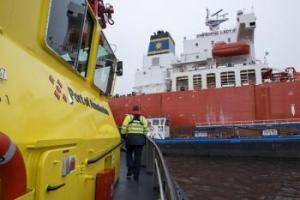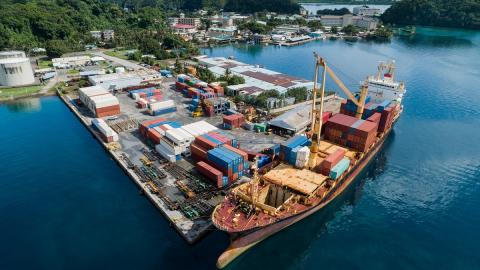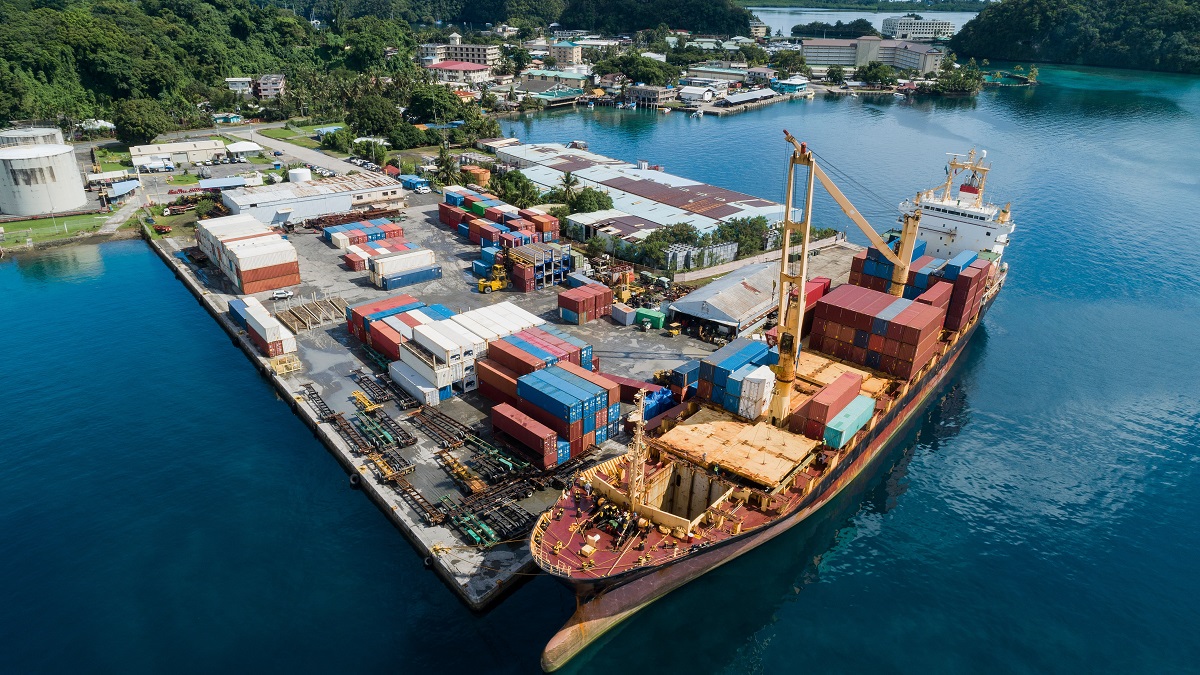Harbour Master
Harbour Masters
Worldwide there are approximately 3,000 merchant ports and the work of the Harbour Master can vary widely from country to country and from port to port even within the same country.



Covid-19, the war in Ukraine, climate change and geopolitics have wreaked havoc on maritime transport and logistics, clogging some ports and closing others, reconfiguring routes, extending delays and pushing up shipping costs.
Ships deliver over 80% of world trade, so disruptions in ports and on shipping lanes mean food, energy, medicine and other essential items don’t reach those in need. Businesses are left without supplies. At the same time prices for producers and consumers soar.
Although delays have improved and dry cargo rates are coming down, maritime transport – and thus world trade – remains vulnerable. The industry must invest now to shore up its resilience to future crises and climate change.
Ports, shipping companies and transport operators need to expand capacity, renew and expand fleets and equipment, ensure adequate and skilled labour, improve connectivity and performance, reduce emissions and safeguard competition to ensure maritime transport can weather the next storm.
These are the views expressed in the Review of Maritime Transport 2022:Navigating stormy waters published on 29 November by the United Nations Conference on Trade and Development (UNCTAD) from its Geneva HQ.
In the words of UNCTAD Secretary-General, Rebeca Grynspan: ‘We must change course and we must do it now. To prepare for the future, we need shipping and supply chains to be more efficient, more resilient, and far greener.’
The world should prepare for unpredictable future with volatile shipping costs
A surge in consumer spending – especially for goods ordered online – combined with supply chain disruptions and logistics constraints pushed container freight rates to five times their pre-pandemic levels in 2021. The surge in container shipping costs, which peaked in early 2022, sharply increased consumer prices for many goods.
Likewise, freight rates for dry bulk – unpackaged raw materials like grains – increased due to the war in Ukraine, the prolonged pandemic and supply chain crisis. An UNCTAD simulation projects that higher grain prices and dry bulk freight rates can lead to a 1.2% hike in consumer food prices, with higher increases in middle- and low-income countries.
Although freight and charter rates have fallen since mid-2022, they are still above pre-COVID-19 levels. And rates remain high for oil and natural gas tanker cargo due to the ongoing energy crisis. In an increasingly unpredictable operating environment, future shipping costs will likely be higher and more volatile than in the past.
On freight rates and shipping costs UNCTAD calls for:
An urgent need to minimize risks and uncertainties to growth
Riding on the surge in demand for containerized cargo, world maritime trade bounced back in 2021. Shipments grew by an estimated 3.2% to reach 11 billion tons. This represents an improvement of 7 percentage points compared with the 3.8% decline in 2020.
Growth was recorded in all developing regions. It increased by an estimated 5.6% in Africa, 3% in Latin America and the Caribbean and 3%in Asia, which remained the world’s leading maritime cargo handling centre, accounting for 42% of goods loaded and 64% of those unloaded in 2021. Read maritime transport figures for Africa, Asia and Latin America and the Caribbean.
Risks and uncertainty remain high. Globally, inflation and living costs are rising and could dampen consumer spending. A zero-COVID policy in China, the world’s largest exporter, could disrupt manufacturing. And the war in Ukraine continues to impact global food, energy and fertilizer markets.
UNCTAD further calls for:
Industry should reduce fleet’s emissions and invest in new ships
Greenhouse gas emissions from the world’s maritime fleet are heading in the wrong direction. Between 2020 and 2021, they went up by 4.7%, with most of the increase coming from container ships, dry bulk carriers and general cargo vessels.
Like emissions, the fleet’s average age is also rising – another concern for the environment since older ships pollute more. By number of ships, the current average age is 21.9 years, and by carrying capacity 11.5 years.
Ships are getting older partly due to shipowners’ uncertainty about future technological developments and the most cost-efficient fuels, as well as about changing regulations and carbon prices.
The world needs a new generation of ships that can use the most cost-efficient fuels and integrate seamlessly with smart digital systems. But shipbuilding volumes remain low. The global commercial fleet grew by less than 3% in 2021 – the second lowest rate since 2005.
Adapting ports and other critical transport infrastructure to the impacts of climate change is a matter of increasing urgency, especially for the most vulnerable countries.
On CO2 emissions and fleet ageing UNCTAD calls for:
Countries should improve port performance and connectivity
The global economy picked up in 2021 and the world’s cargo-carrying ships made more port calls. The rebound continued in the first nine months of 2022 in all segments except container ships, which faced continuing congestion.
The median turnaround time for container ships, which carry most of the world’s manufactured goods, increased by 13.7% between 2020 and 2021.
Globally, liner shipping connectivity has also suffered in all regions since the start of the supply chain crisis – but with variations between countries.
In the United States, for example, long-term underinvestment in West Coast port infrastructure weakened performance in handling containers. And countries in Africa and Latin America and the Caribbean lost more than 10% of direct shipping connections.
Meanwhile, India extended its regional connections by upgrading port capacity. And China, the world’s most connected country, widened its lead.
With regard to Port performance UNCTAD calls for:
Countries should protect competition and level the playing field
Over the years, mergers and acquisitions have consolidated and transformed the container shipping sector, which carries most consumer goods. Carriers have also pursued vertical integration by investing in terminal operations and other logistics services.
Over the last 25 years, the top 20 carriers have almost doubled their market share from 48% to 91%. And the four largest carriers now control more than half of the global container shipping capacity.
Consequently, the number of companies that provide services to importers and exporters have fallen in 110 countries, notably in small island developing states, where at times a duopoly of just two carriers dropped to a monopoly of one.
Integration has given carriers and their alliances stronger negotiating and bargaining positions vis-à-vis port authorities, as they now have two seats at the table – as both tenants of terminals and providers of shipping services.
Consolidation in the shipping market reduces competition and constrains supply. It can lead to market power abuse, higher shipping costs for businesses and thus higher prices for consumers.
On the growing market power of top carriers UNCTAD calls for:
The 195-page report may be downloaded here:
https://unctad.org/system/files/official-document/rmt2022_en.pdf
Picture caption
A container ship unloads cargo at a port in the Federated States of Micronesia.
Photo per www.unctad.org UNCTAD ©.
Founded in 2017, MarineLabs delivers high-resolution, real-time, and historical wind, wave, and weather data, as well as hyper-local 10-day forecasting, from a growing network of cloud-connected, rugged sensor nodes.
The International Harbour Masters Association (IHMA) and the Port of Rotterdam Authority are pleased to announce the 15th International Harbour Masters Association Congress, to be held from 09–12 June 2026 at Theater Zuidplein in Rotterdam.